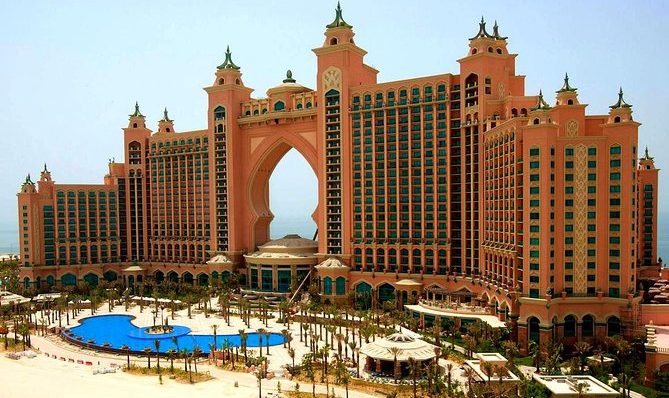Dubai is a popular tourist destination. You can have a great time during your visit to Dubai because there’s something for everyone. But before you visit, there are a few important things that you need to keep in mind. Let’s take a quick look at what they are.
Understanding Dubai’s Cultural and Social Norms
1. Dubai: An Overview
Recognize that Dubai is an Islamic country with more conservative social norms than Western nations. Women and men both dress modestly in public, avoiding revealing clothing. Public displays of affection between couples are frowned upon. You are likely to hear the call to prayer echoing from mosques in UAE five times a day.
The city is extremely safe for tourists, with very low crime rates. However, travelers should still exercise common sense precautions as in any big city. Avoid carrying large amounts of cash or flashy, expensive jewelry. Keep valuables secured. People in Dubai are generally quite welcoming to foreigners. The population is over 80% expatriate, so the city is highly multicultural.
2. Getting Dubai Visa
Tourists from many nations like the USA, UK, EU, Australia, and Japan can get a free 30-day visa upon arrival. But other nationalities including China, Russia, India, and certain African countries must apply beforehand for a Dubai visa. Applications are submitted online through airlines, hotels, or UAE-approved travel agents.
Transit passengers stopping over in Dubai for less than 96 hours en route to another destination receive a free transit visa. But if you plan to leave the airport during your layover, apply for the 96-hour transit visa upfront to avoid delays.
Be sure to verify your nationality’s visa requirements on the official UAE government portal before departure to avoid problems entering Dubai. Carry a printed copy of your visa approval letter with your passport when arriving.
3. Culture of Dubai
Dubai is an Islamic society so it’s important to dress and behave respectfully. Avoid public nudity or revealing swimwear at beaches and hotels. Bikinis are acceptable only at hotel pools and beaches, not in public areas. Outside major hotels and private beaches, women should cover shoulders, midriffs, and knees. Men should avoid sleeveless tank tops and shorts.
Public drunkenness or intoxication can lead to fines of several months jail time in Dubai. The legal drinking age is 21. Nightclubs and bars at hotels strictly check IDs and do not serve alcohol to those who are underage.
Possession of even tiny quantities of illegal drugs warrants severe penalties in Dubai, even traces of drugs on clothing, bags, or shoes.
Public displays of affection should be avoided between romantic couples. Be discreet and don’t kiss, hug for long periods or hold hands in public. During the holy month of Ramadan, eating, drinking, or smoking publicly between sunrise and sunset is considered offensive.
4. Communicating in Dubai
English is widely spoken in Dubai, especially in hotels, restaurants, shops, and taxis frequented by tourists. However, many lower-wage service workers and drivers speak only basic English. Verbal communication can be challenging at times, even ordering food or giving directions.
Learning a few polite Arabic phrases shows respect and makes interactions smoother. Keep an English-Arabic dictionary or Google Translate app handy when communicating in the city. Taxi drivers generally have limited English skills, so it helps to have your destination address written in Arabic.
5. Where to stay
Dubai offers a huge array of accommodation choices. 5-star luxury beachfront resorts like Atlantis, Jumeirah Beach Hotel, and Burj Al Arab offer ultimate opulence with world-class amenities and service. For more affordable rates, hotels in the older parts of Deira or Bur Dubai provide decent lodging.
Furnished apartments are also very popular for long-term stays and families, with complexes like the Address Downtown and Marina District offering studios to 3-bedroom units. Near the airport, transit hotels cater to overnight layovers.
During major events like New Year’s Eve or the month-long Dubai Shopping Festival, hotel rates surge and rooms book up 6 months in advance. Be sure to reserve accommodation well ahead of time to secure a room. Read reviews and hotel policies carefully before booking.
6. Shopping in Dubai
One of the world’s premier shopping capitals, Dubai features enormous ultra-modern malls with practically every international brand imaginable. Top picks like the Mall of the Emirates, Dubai Mall, and Ibn Battuta Mall should be on every shopper’s list.
The Dubai Mall featuring an indoor aquarium and ice rink, has over 1200 stores and receives over 80 million visitors annually. Mall of the Emirates is famous for its indoor ski slope. Ibn Battuta Mall offers six sections themed on different world regions.
Sprawling local markets called souks also offer handicrafts, gold, spices, and textiles at good prices if you negotiate. Historic Deira Gold Souk and aromatic Spice Souk shouldn’t be missed. Dubai shopping offers tax-free bargains, but comparing prices at different outlets is wise.
7. Buying Gold in Dubai
In Dubai’s lively Gold Souk located in Deira, hundreds of small glittering jewelry shops sell every variety of gold item imaginable. Browse the dizzying selection of stores to compare styles and prices of necklaces, bracelets, rings and more.
Haggling is not just accepted but expected when purchasing gold in the Dubai Gold Souk. Shopkeepers initially quote inflated tourist prices. Experienced buyers start with 30-40% below asking price and negotiate up. Bargaining politely but firmly is key. For large purchases, be sure to verify gold purity to avoid scams. With reasonable bargaining, the Gold Souk offers some of Dubai’s best gold prices.
8. Places to eat
Dining out in Dubai is a delight with over 11,000 eateries ranging from street food stalls to Michelin star restaurants run by celebrity chefs. Given its multicultural population, cuisine from all over the world is available.
Lebanese, Iranian, Indian, Pakistani, and Middle Eastern fare features prominently. Classic Emirati dishes include machboos (rice cooked with meat or fish), grilled meats, falafel, hummus and mutabbaq (stuffed pancake). Western fast food chains like McDonald’s, Shake Shack, Five Guys, and Tim Hortons have a major presence too.
Dubai hotels house the most upscale dining, with award-winning restaurants offering everything from Japanese sushi to French haute cuisine. For alcohol, stick to licensed hotel venues. Mall food courts provide cheaper casual bites like shawarma wraps, curries, biryanis, and pizzas. Don’t leave Dubai without trying uniquely Arabian camel milk and date shakes!
9. Renting a car
While public transportation like the metro, buses, and taxis is decent, renting a car provides maximum flexibility to explore Dubai and surrounding areas at your own pace. To rent, drivers must be at least 21 with an international license. Major companies like Hertz, Avis, and Europcar operate car rental desks within Dubai International Airport. Pre-booking online yields cheaper rates.
Dubai has ample signage in English, but navigating the highways and finding parking can be difficult in congested areas. Gasoline and road tolls are quite inexpensive. If opting for a rental car, mapping routes in advance is wise, along with downloading offline maps in case of connectivity issues.
Final words
Knowing these important points will help you avoid hassles, respect local customs, and have an incredible trip to Dubai. With proper preparation, you’re sure to enjoy everything this multi-faceted destination offers, from sun-soaked beaches and desert escapes to world-class shopping and dining. Dubai’s blend of Arabic traditions and futuristic vision provides something to delight every type of traveler.











A place i dream to visit when God blesses with money.